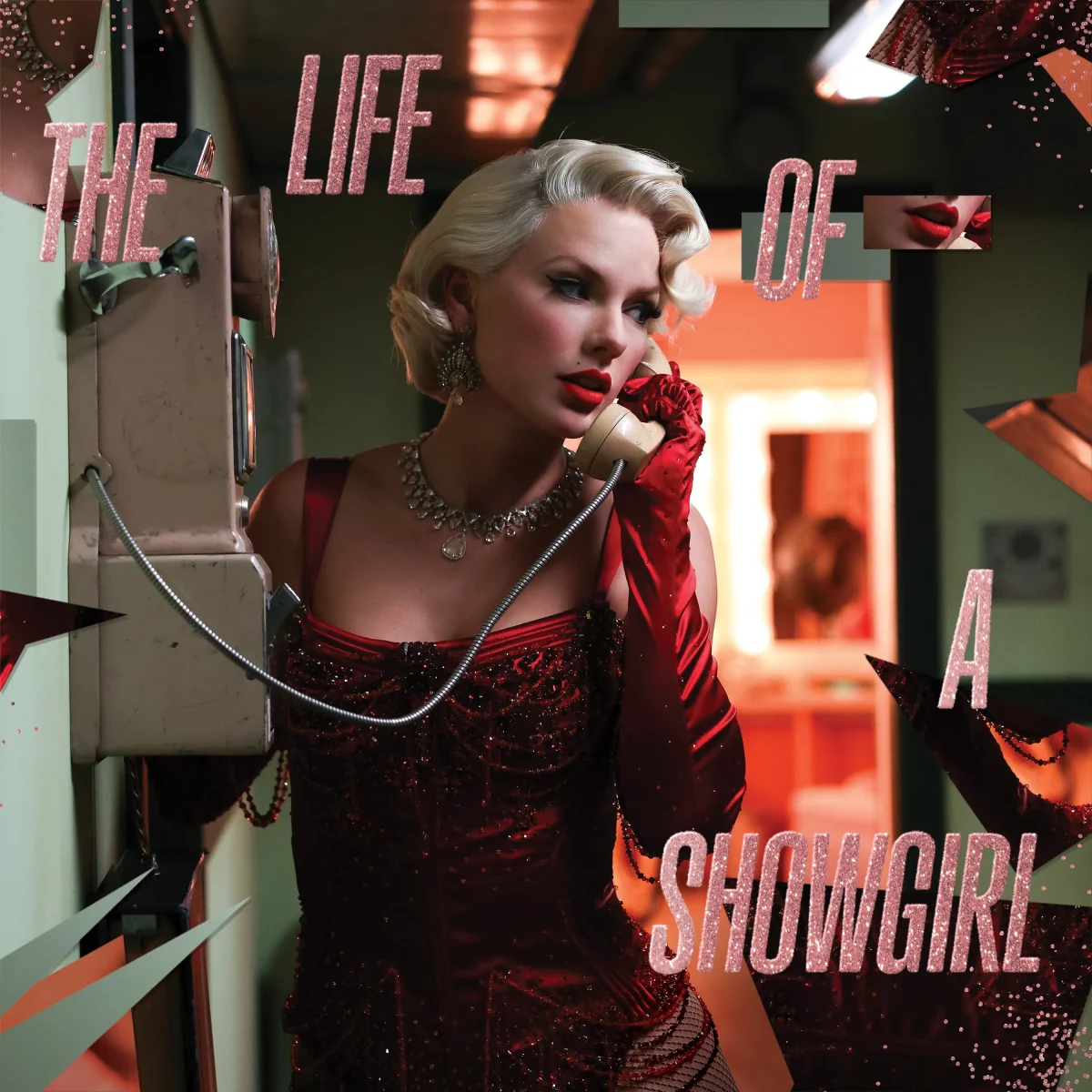Taylor Swift has traveled through many eras and genres of music over the last two decades. Although she has faced backlash each time, Swift’s fans have stood by her, and she is still able to break records with each release.
Her new album, The Life of a Showgirl, is no exception. For pop music fans, it is exciting that Swift has returned to that sound after five years of more melancholic tunes. Unfortunately, this album felt like any other pop album, which is not something that was expected after a period of Taylor Swift having an alternative sound. In the new release, the music was not unique, nor were the lyrics. More could have come from the “Tortured Poet” of last year.
This new album feels like an awkward transition stage between careless fun and the poetic depth that her fans have grown accustomed to. In her track by track commentary for the album, Swift found pride in mixing “modern terminology” with older-sounding lyrics, but this has been met with backlash. Many of her younger fans feel like it reflects “millennial cringe” or that it sounds forced and outdated.
“The Fate of Ophelia” has a story line that relates back to Shakespearean literature and created hope that the album would be much like her others: rooted in old folklore and myths. In the song, Swift expresses that she has found someone who does not make her feel like she is being driven insane by love, like Ophelia is in Shakespeare’s Hamlet. Some of the lyrics reflect that, but the more simple lyrics of “keep it one hundred” and “vibes” do not exactly fit into the piece.
Similarly, in track five, “Eldest Daughter,” a song about how public life is inauthentic, Swift uses the lyrics “this isn’t savage.” In a song about being able to be your true self around people you love, dated language ruins what otherwise would have been beautiful and melodic with its gentle piano and guitar. Swift and her fans often consider track fives to be the deepest and more personal songs on each album, but “Eldest Daughter” did not fit the standard.
As for the song “Wood”, Swift called it a “very sentimental love song,” but she has love songs so much deeper and more personal than it. The highly suggestive nature of this song makes it tacky.
On the other hand, “Opalite” stands out on the album. It is a love song about Swift making her own life better. It has the effective metaphor of opalite, a man-made opal used to represent Swift’s self-made happiness. It is simple, but it has a better beat than “CANCELLED!” which sounds too simple to be a part of Taylor Swift’s discography.
“Elizabeth Taylor” reminds listeners that Swift cares more about love than she does pleasing an audience. She’s never been able to make everyone happy, and she never will. Like Swift, Elizabeth Taylor was a showgirl loved for her beauty and her work on the silver screen. Taylor Swift feels that she has to be seen a certain way to impress the masses. She has other songs about this pressure, like “Lucky One” off of the Red album, and the titular track, “The Life of a Showgirl,” too.
This album has two main themes: love and being a “showgirl” who lives in the spotlight. It is yet another piece created by Swift to highlight the things that are important to her. Unfortunately, it felt rushed and does not offer anything new that cannot be given by any other Taylor Swift album.




























